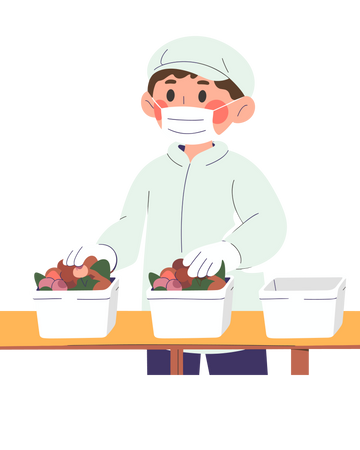🧁 What Are Ultra-Processed Foods?
Ultra-processed foods (UPFs) are industrially manufactured products that go far beyond basic processing. They often contain ingredients you’d never use in a home kitchen — such as flavour enhancers, preservatives, emulsifiers, and artificial colours.
Common examples include:
Chips, cookies, and packaged snacks
Sugary drinks and flavoured yogurts
Instant noodles and frozen pizzas
Sausages, nuggets, and ready-to-eat meals
“Healthy” snack bars with long ingredient lists
These foods are designed to be tasty, cheap, and convenient — but that’s where the danger lies.
---
😋 Why Ultra-Processed Foods Are So Addictive
Food scientists have mastered the art of engineering taste. By combining sugar, salt, and unhealthy fats in the perfect ratio, ultra-processed foods activate your brain’s reward system — releasing dopamine and making you crave more.
The “tasty trap” includes:
Irresistible flavours that make you overeat
Attractive packaging and marketing buzzwords like low-fat or whole-grain
Convenience — no cooking, instant satisfaction
Emotional connection — comfort food that soothes stress or boredom
That’s why even after a full meal, that packet of chips still looks tempting.
---
⚠ Health Risks of Ultra-Processed Foods
Long-term consumption of UPFs is linked to a wide range of chronic diseases and health problems.
🩸 1. Weight Gain and Obesity
Ultra-processed foods are calorie-dense but nutrient-poor. They’re easy to overeat and don’t keep you full for long, leading to unwanted weight gain.
🍬 2. Diabetes and Insulin Resistance
Refined sugars and starches cause rapid blood sugar spikes, which can increase your risk of type 2 diabetes.
❤ 3. Heart Disease and High Blood Pressure
Most UPFs contain excessive sodium, trans fats, and additives — all of which raise your risk of heart disease and hypertension.
🥦 4. Nutrient Deficiencies
UPFs often replace whole foods in the diet, leading to low intake of fibre, vitamins, and minerals despite high calorie consumption.
🦠 5. Gut Health and Inflammation
Artificial additives and emulsifiers may disturb gut bacteria, triggering inflammation and affecting overall immunity.
🧠 6. Mental Health Effects
Several studies link UPF-heavy diets to depression, anxiety, and cognitive decline due to inflammation and poor nutrient quality.
---
🧠 The Psychology of Food Addiction
Ultra-processed foods are designed to keep you hooked. They provide instant pleasure without real nourishment — a cycle that mimics addictive behavior.
Even “healthy” packaged products — like granola bars or protein snacks — can be ultra-processed in disguise. Always check the ingredient list: if it’s long or full of additives, it’s not real food.
---
🥗 How to Escape the Tasty Trap
Here are simple, practical steps to cut down on ultra-processed foods and reclaim your health.
✅ 1. Read Labels Carefully
Avoid products with long ingredient lists, hidden sugars (glucose syrup, maltose), or artificial colours and flavours.
✅ 2. Choose Whole or Minimally Processed Foods
Base your meals on fruits, vegetables, legumes, whole grains, nuts, and lean proteins.
✅ 3. Cook More at Home
Homemade food doesn’t need to be fancy — a simple dal-chawal, sabzi-roti, or vegetable stir-fry is far healthier than packaged meals.
✅ 4. Swap Smartly
Instant noodles → Whole grain pasta with veggies
Sugary drinks → Lemon water or herbal tea
Packaged snacks → Fruits, nuts, or roasted makhana
✅ 5. Eat Mindfully
Avoid distracted eating while watching TV or scrolling on your phone. Slow down and let your body tell you when it’s full.
---
🇮🇳 The Indian Food Context
In India, ultra-processed food consumption is rising rapidly — from chips and instant noodles to sugary beverages and ready meals.
Traditional Indian diets, rich in lentils, grains, and fresh produce, are naturally balanced and protective against chronic diseases.
Reconnecting with those home-cooked roots can help you avoid the processed food trap without giving up taste or convenience.
---
💬 Final Thoughts: Real Food Over Fake Flavor
Ultra-processed foods are marketed as fun, fast, and flavorful — but they come at a high cost to your health.
They’re the shiny traps of modern eating — engineered for pleasure but poor in nutrition.
Eating them occasionally is fine, but when they replace real food, your body pays the price.
Choose foods that nourish, not just entice.
Because in the long run, nothing tastes better than good health.


